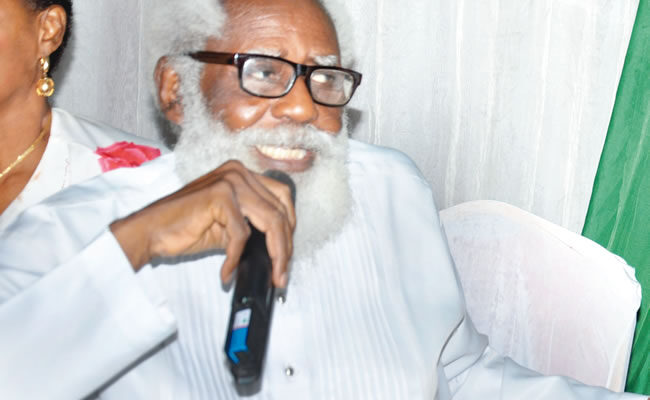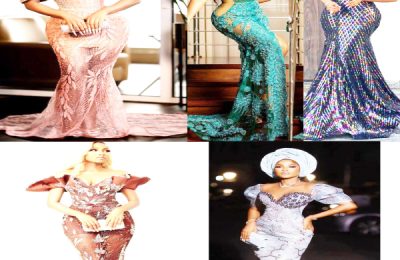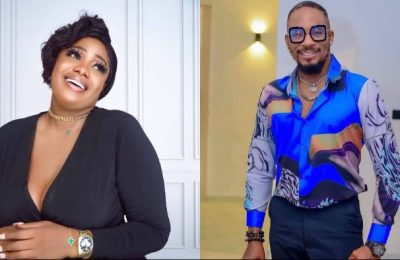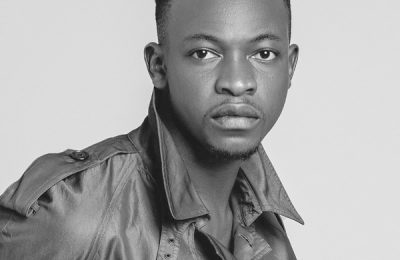

Ambassador Yemi Farounbi is many things rolled into one. He was a geologist, a geographer, a secondary school teacher, a lecturer in Mass Communication at the polytechnic and in Communication and Language Arts in the university; and Nigeria’s former Ambassador to The Philippines. However, the outermost of the layers that wrap this enigmatic personality is his colourful life as a TV personality and filmmaker of immense repute. He tells SAM NWAOKO his story in this interview.
When we look back at the name, Yemi Farounbi, one of the things that readily come to mind is filmmaking and popular television series. How did you get into filmmaking and what were your years in the trade like?

When, eventually, I left the Nigerian Television Authority (NTA), my mind was made up that I was going to go into filmmaking. That was ever before I had to work with the Oyo State government under Governor Bola Ige in setting up the Television Service of Oyo State (TSOS). I was planning to make a film called King Henri Christophe. This was the story of a black man who became the king of Haiti. He was reputed to have led the troops of Haiti to defeat the troops of Napoleon Bonaparte. So, I was trying to make that film from the point of view of projecting the Yoruba culture because quite a number of things that you find in Haiti today originated from Yoruba. They say they have voodoo. They said that they have voodoo instead of juju. In Haiti at that time, if you had malaria, they will make a concoction for you and cover you with a big cloth so that you can sweat it. That was what I was trying to raise funds to do when Governor Bola Ige invited me to come and start the Oyo State television. So, when I finished that assignment and left the government after Chief Bola Ige lost his election, I came back to the film industry. I had resolved in my mind, after I couldn’t do the King Henri Christophe which was in English, that all my films or all my TV productions would be in Yoruba. This was because I found that that was a way of marketing our culture and propagating our culture, the way the Indians do. You will find that the bulk of Indian films is in their language. They can do an English summary of the films. So, I therefore came into film industry. Before I did my major films, I did a few TV programmes. I did Igba Oro with Jimoh Aliu Group that I had discovered when I was General Manager, NTV Akure. Eventually we did Arelu that swept the whole of the South West. We didn’t do it only in Oyo State, we syndicated it all over the Yoruba states. So, by the time we now went into my film, Agba Arin, we had established a name. I also did another film based on Adebayo Faleti’s Idaamu Paadi Mikailu ‘The Dilemma of Father Michael’; we called it ‘Iwa’. So, that was how I got into the film industry.
How about Yanponyanrin? Were you part of that popular TV series too?

Yes, I produced Yanponyanrin parts 1 and 2 on television using the Jimoh Aliu Troupe. I did Agbeleku using the Olagunju Troupe. I also did Omo Inu Oku with another troupe. I must have done about eight of such TV productions. All these works were generally trying to expose the triumph of good over evil.

Considering how much you did as a broadcast personality up to your starting the Oyo State television outfit and how much you also did in the Nigerian film industry, it will be interesting to know how your media journey actually began.
My media journey started by accident. However, I think it was more by sheer grace of God. I had finished at the University of Ife and I think I finished top of my class and I had admission with fellowships to go to University of British Columbia in Vancouver – I had a Richard Mellon Fellowship to do Urban and Regional Planning; I had a Western Regional Scholarship to do Town Planning at the London School of Economics. But I preferred going to the University of Pittsburgh in Philadelphia to go and do Geomorphology. This was because my dream really was to become a professor of Geomorphology. But before these admissions, assistances and fellowships, I had no international passport. At that time, there was only one passport office in Nigeria, it was in Kakawa Street in Lagos. It was so manual and you had to visit the place two to three or four years before you can get your passport; you had to be there to pile pressure on them to get your passport. You had to take a ladder, go up the shelves to find your file and something like that otherwise you would never get a passport that easily. Then I was teaching at Oyemekun Grammar School in Akure and it occurred to me that Akure was so far from Lagos that I needed a job either in Lagos or Ibadan so that I can closely monitor my application for passport so that I can take advantage of any of the fellowships that I had to go and do a postgraduate course. It was while I was in pursuit of that that I saw an advert from WNTV/WNBS. I wasn’t prepared for it. I wasn’t trained for it. I had started my life as a geologist and ended up as a geographer with emphasis on geomorphology. So, I nearly gave up because it wasn’t that I knew about mass communication or drama or anything like that. In fact, at that time, there was only a college of journalism at the University of Nigeria, Nsukka. The Department of Mass Communication in the University of Lagos had not even started. So, it wasn’t that I had a training or an exposure, but I applied to work in WNTV and they sent me for an aptitude test – all of us that applied. I was slated for an interview and, apparently I was adjudged very good at the interview but I didn’t get an appointment for three months. Subsequently, I came to discover that there was debate within WNTV itself – that I had a good result, I did well at the aptitude test and I did very well at the interview and had indicated to them that I wanted to go abroad do post-graduate courses. So, they doubted that if they should take me that I might not stay long. Eventually, because Nigeria was at that time a country still committed to merit, I got appointed. That was how I got to WNTV. It was either divine or an accident.
So, you came from the background of the sciences to become somebody well versed in the arts…?
Yes. It was when I got to WNTV that I discovered that I had a lot of artistic talent. I knew when I was at secondary school – either at Christ’s School or Molusi College – that I loved music and I had a band. Even when I was teaching at Oyemekun, I had a band. Then I discovered I could write short stories and one of such stories won the third place with Radio Netherlands. So, I didn’t know that I had artistic inclination; I thought I was doing science. When I got to WNTV, I discovered I had all of that and they took over all that had been the science training that was in me.
When you look at how much you had done in the media world, your works in the theatre and the evolution which has taken place in that aspect of our media industry, how would you rate the theatre today sir?
The theatre today has been overtaken by technology. At that time, we had the celebrated Alarinjo Theatres; that was what the Yoruba was famous for: Hubert Ogunde, Kola Ogunmola, Oyin Adejobi, Duro Ladipo and they were doing major stage plays. Other smaller groups too were there. At the end of the year, they go round secondary schools and stage plays for them. But that no longer exists. Even for the English theatre, in Ibadan here – related to Mabari Mbayo, there was a thriving stage theatre in English in which Wole Soyinka, Christopher Okigbo, Christopher Kolade, Femi Johnson, Ezekiel Mphalele, Chinua Achebe and all others were involved. And they used to stage very powerfully at the University of Ibadan regularly stage plays. All of that have gone, they’ve been overtaken by film production. As at the time I was doing film production, Nigeria was producing barely 20 – 25 films in a year. In fact, but for Ola Balogun, who was producing a large number of films and Ade Love otherwise films were very sparing. But today Nigeria’s film industry has become the number two in the world. So, technology has made stage plays unnecessary but I still believe that there is a place for stage plays. There is still a role for stage plays as a training ground for those who would emerge in the film industry. So, the theatre really had collapsed in the face of technological development particularly when we left celluloid. We used to make our productions either in 36mm film or 15mm film and a few people, like ‘Tunbosun Odunsi tried the 8mm. You shoot here and you go abroad to process and edit it. That time, you use CineCap like Tunde Kelani and Eddy Ugboma would do; that too has also given way to video technology. In fact, you can do better production on video format which makes it cheaper and more domesticated because you can shoot in the day and edit in the night and if you need to, you can re-shoot. In those days, you shoot, you carry the film to the UK, you find that there were parts that were not good and you have to come back to Nigeria to do it again. That was a delaying period.
Recently the death of Ojo Arowosafe was announced. What this means is that Chief Jimoh Aliu (Aworo); Folake Aliu (Orisabunmi) and Ojo Arowosafe (Fadeyi Oloro), the trio that made Arelu, Yanponyanrin and other such works tick have left the scene. What was your relationship with these notable artistes?
I had the privilege of being divinely used to promote this group because they were largely unknown and were based at No 6 Ilepa Street in Ikare-Akoko. But I came in as the GM of NTV Akure and a lot of the artistes who were featuring with me when I was GM in Ibadan wanted to go along with me – the Alawada Group, the Ajimajasan Group, the Awada Troupe and all of that but I didn’t like that because I wanted to create in NTV Akure drama successes using the talents in Akure. So, one of my staff members told me about Jimoh Aliu and I said they should bring him and we met. He was heavily bearded like me and a lot of people used to call us twins. So, when I now found him, I did Igbo Olodumare with him. When I was in Ibadan, we had done Igbo Irunmole with Duro Ladipo. Before Duro Ladipo passed away he and I had agreed that we would do Aditu Olodumare. Unfortunately he was sick, came to UCH and never came back. So, when I got to Akure, I wanted to use indigenous groups there and there were quite a large number of them, but the primary one was the Aworo (Jimoh Aliu) group.
It wasn’t Ojo Arowosafe that was Fadeyi then, it was Daramola, and it was his wife, Ramota Daramola, that was Orisabunmi. Circumstances created a change. We had a live show at the Oduduwa Hall, Amphi Theatre Theatre of the Obafemi Awolowo University. Having made some remarkable impact on the society because of the television production of Igbo Olodumare where Jimoh Aliu featured as Olowo Aye. We got there for the stage play, the hall was filled up with students but we didn’t find the then Orisabunmi (Ramota) and we didn’t find the then Fadeyi (Daramola) who was called Egbeji much later. They didn’t show up, we had the crowd and you know what students can be. They had paid and it would be difficult if we didn’t go on with the show. Ojo Arowosafe used to act as the son of Fadeyi, he was Fabunmi as a matter of fact. He used to follow him on stage and so on. So, he told us that he could act the role as he had been following him on stage, that he knew all the nuances, incantations and all others like that. Because we were desperate, we scheduled him to be Fadeyi that day and we scheduled Shade Aliyu to do Orisabunmi. Happily they did very well. In fact they did so well that the students were riotous in appreciation. So, we had almost finished when the Daramolas came and they found that we had not been let down and that the crowd response was something else. So, they pleaded with me that they would act the next day and I said no, that the students would stone me if I now change the people that they had joyously reacted to. That was how we eased out the Daramolas.
One of the great things about production is location. When you have a good story, you must have a good location, the costume, good design and good characters that would translate the story. So we chose to do a recording at Omu Aran and on our way, we always stopped at Sunny Stores at Ilorin. The owner (Sunny) was from Ido-Ekiti, very near my mother’s home town, Usi-Ekiti. So, we stopped there and in the office of Sunny one day while we were eating breakfast on our way to Omu Aran we heard somebody singing. It was like Ijala and I asked ‘who is this?’ They said it was the accountant or cashier – something like that. I asked Sunny to bring the lady. I asked there and then her if she could join us in the production because it would appear that the sonorous song was indigenous to her family. She was born into it. We decided we would use her and that was how she became Orisabunmi. After this experiment, we didn’t take Daramola as I said and we decided to upgrade Ojo Arowosafe from being Fabunmi to Fadeyi. Of course he was more dramatic. Of all the artistes I met when I was in production, Ojo Arowosafe was the easiest to train. Oh, you need to see his movement on stage. He could adapt to any role. He was just great. He was such an artiste that could act yourself in your place. I saw some artistes that could not act anything except Oba, or except the boss. He was as good as Kola Ogunmola and he could act any role and he was very mobile, very fluid. He was very teachable and he was more fearsome as Fadeyi. So to distinguish him, we now called him Fadeyi Oloro. Because God had used me in identifying them, in doing Igbo Olodumare, later on Igba Oro, later still Yanponyanrin and subsequently Arelu, and featuring them in Agbarin, we had a really very close relationship. It was because of that I discovered that one of his wives, Iya Ige – she died much earlier, was in fact a relation of my mother’s. So, we operated almost like a family. All his children and Jimoh’s children still get across to me till today. So, we had a wonderful relationship.
Were you taught public speaking and writing? What kind of training did you receive in these?
Was I taught?
It seems so because these are your fortes. And having studied Geology and ended up with Geography, doesn’t it seem so?
When I came into broadcasting, I attended a lot of short courses. I was at the BBC for a training course. I was at University of Leicester Centre for Mass Communication and Training. I was at the Institute of Developmental Training of the University of Sussex. I had attachment with Norwich Television, I had attachment in Radio Clyde in Glasgow. I had a lot of catch-up trainings like that. Of course, because I got fascinated by the industry, and I decided that I was going to make a name out of it, so I self-trained myself. Of course we didn’t have Google then, so you had to read encyclopedia, I had to buy books. I had a large collection of books on Mass Communication – the various aspects of it – Communication Theories, History of Communication Thoughts, Media Planning, Media Scheduling, Public Relations, and Advertising. In fact, I spent about seven years teaching advertising and public relations to HND students at The Polytechnic, Ibadan. Also, I spent about eight years at the Department of Communication and Language Arts, University of Ibadan teaching students of Masters in Communication Arts and I had one PhD student. For me to be a teacher, I had to train. I had to acquire more knowledge myself. So, it wasn’t that I particularly studied public speaking and all of that in an institution but I studied it because I knew it was vital to what I wanted to do as somebody who loves the Arts and wanted to add value and who wanted to make an impact and who, by the grace of God, has been able to achieve my personal objectives.
READ ALSO FROM NIGERIAN TRIBUNE









